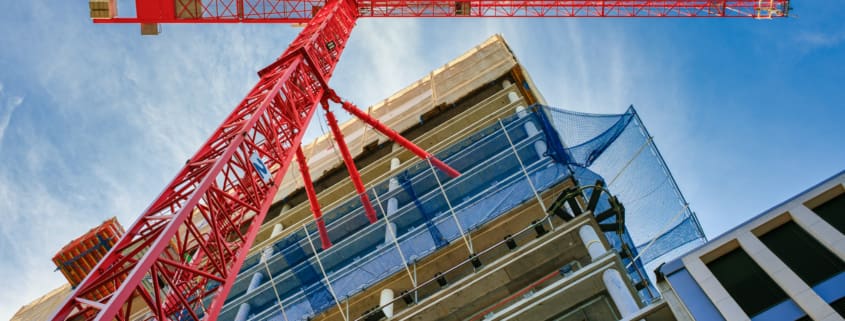CSLB Site Sweeps and EDD Audits
CSLB site sweeps and EDD audits can cost business owners delays, fines, stop-work orders and even potential jail time.
In 2019 and 2020, CSLB’s Statewide Investigative Fraud Team (SWIFT) responded to 855 leads, conducted 52 sting operations and 216 sweep days. These efforts led to the issuance of 260 Notices to Appear in criminal court. In total, 368 cases resulted in administrative action and 634 cases were referred for criminal prosecution.
However, there are steps business owners can take to mitigate these risks. Let’s dive in.
What is a CSLB Site Sweep?
According to CSLB, construction site inspections, or sweeps, are “among the most effective ways that CSLB ensures contractor compliance with California’s licensing and workers’ compensation (WC) insurance requirements.”
How Do CSLB Site Sweeps Work?
A site sweep occurs when several government agencies, including CSLB, Employment Development Department (EDD), and the California Labor Commissioner target a specific local area. Teams belonging to these government agencies physically visit active sites and conduct a site inspection. These inspections are random and can occur at any time.
During a site inspection, workers are interviewed by CSLB to verify whether they are properly licensed.
What Does CSLB Look For in a Site Sweep?
CSLB will look for:
- Appropriate licenses
- Permits
- Workers’ compensation insurance for employees
- Adherence to safety rules
What Risks Do General Contractors Face in CSLB Site Sweeps?
If the agency uncovers misclassifications or unlicensed contracted workers, general contractors will be subject to heavy fines and penalties.
Additionally, general contractors who hire unlicensed workers and unlicensed subcontractors put themselves at risk for potential criminal action by the local District Attorney (DA). They risk receiving a stop-work order from CSLB.
Even a legitimate subcontractor who is licensed can run into issues if their license becomes suspended.
How Can General Contractors Prepare for CSLB Site Sweeps?
General contractors can protect themselves by regularly checking and confirming that all workers’ licenses are current and legitimate. We recommend checking licenses at least on a monthly basis.
CSLB Refers Cases to EDD to Audit
CSLB refers their cases to EDD to audit the company. Let’s take a look at what EDD audits are and the difference between CSLB audits and EDD audits.
What is the Difference Between CSLB Audits and EDD Audits?
Both CSLB and EDD can conduct audits and site sweeps of your business. However, the difference lies in what these agencies are looking for; CSLB focuses on licensing, EDD reviews payroll tax compliance.
To learn more about the difference between these agencies, read our article, here.
What Does EDD Look For in an Audit?
In an audit, EDD determines if the employer has paid the full and correct amount of taxes due under California law. Further, EDD identifies whether the independent contractors are correctly classified as 1099 workers or if they should be classified as W-2 employees.
If you are found to have misclassified your workers as 1099s as opposed to wage-earning W-2s, your company is obligated to pay back payroll taxes and will be charged back penalties.
EDD Audits and Employee Misclassification
Employee misclassification can expose your business to fines, penalties, and potential jail time.
According to EDD, industries that run a higher risk of misclassifying workers include:
- Construction
- Hospitality
- Technology
- Healthcare
- Seasonal Industries
Learn more about EDD audits, here.
Facing an EDD Audit?
Once you are aware your business is being investigated, it’s important to reach out to a qualified Tax Attorney to represent you. Crafting the narrative around the “why” and “how” of your contractors’ classification can make the difference between your case being dismissed or your company owing back payroll taxes and fines.
Call Milikowsky Tax Law as soon as you discover your business is facing an audit by CA EDD.



